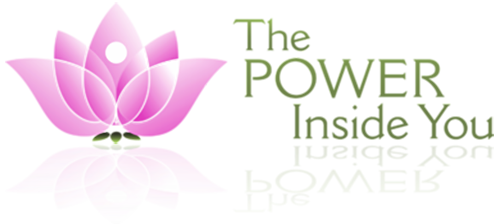
20 Jun Misconceptions that prevent people from going to counseling or psychotherapy
Have you ever, secretly, dealt with a cascade of emotions that move from deep sadness, disappointment, annoyance, fear, anger, or even rage?
Have you ever felt walking in endless circles around contradicting thoughts and feelings about what you are living?
Have you ever screamed silently, inwards, in an attempt to quiet those recurrent thoughts or to stop those feelings that seem to be boiling up and threaten to surface at the most inconvenient times?
Have you ever changed the subject of a conversation, move to a different activity, leave a place, or force yourself out of a situation in order to avoid these intolerable and uncomfortable feelings?
Have you at least once use few drinks, comfort food, sleeping pills, risky behaviors, sex, work or exercise excessively in order to get your mind distracted or push down those painful feelings?
If you have found some resonance with any of the questions above, you are not alone and it is not uncommon we have that kind of experiences as human beings.
All of us struggle internally, all of us have moments when we feel we want to hide or escape instead of facing the pain and discomfort we feel.
How realistic is to think that you can escape from your own shadow? No matter what you do to avoid the reality inside you, no matter how hard you push down your feelings, or how far you move away, sooner of later that energy you have invested in suppressing or repressing your emotions will be exhausted and it will bounce back like a ball you have tried to keep underwater for a long time until you cannot do it anymore.
You might think you have conquered your emotions by suppressing them because you “don’t feel anything” but that itself is a problem, because when you numb yourself against the undesirable feelings, you numb yourself from the healthy and pleasurable emotions as well. The areas on your brain (limbic system) do not differentiate. Your brain won’t select what kind of emotions you will feel or not. You will feel detached from life and you will find yourself not being able to enjoy it.
As human beings we are wired to be “problem-solvers”, we try to figure things out and give solutions (even in an anticipatory manner) to any issue hindering the flow of life. However, is time to start thinking about a more radical solution (besides hiding, escaping, ignoring, suppressing, etc.) To what is going on inside our souls.
If the washer or our car starts making unusual noises, most likely we will call a technician or the mechanic, depending on the case. If we feel a change in vision or a toothache, most likely we will search for a health professional to help us with that issue. We even take a preventive approach and, at least once a year, we go for an annual check-up to our doctor, we go to cleaning appointments with the dental hygienist, we take our car for an oil change regularly, we pay multiple insurances just in case something happens.
If we have this ability to detect and anticipate problems and move quickly to take the steps to offer solutions or preventive measures, how come we are so neglectful when it comes to our emotions?
Maybe part of the reason comes from misconceptions about mental health care. Here are some of the most common distorted ideas people have expressed about going to psychotherapy.
1. That is for crazy people, i’m not crazy!
What commonly people understand as “crazy” refers to the image of a person in a straightjacket in a psychiatric hospital, which I will dare to say is the lowest percentage of people, we as mental health professionals, treat.
Certainly there are some human beings with extreme mental health problems that need a more intense and specialized care, but even those in a psychiatric facility should not be called “crazy people” but mentally ill people. Moreover, it should not be any stigma around mental illness because it is just that, an illness. Illness is defined in the Merriam Webster dictionary as “an unhealthy condition of body or mind”.
Have you ever blamed or looked different to people with illness such as diabetes or high blood pressure? Usually, even though some body health conditions might stem from our poor habits, people rarely gets look down for having such illness. On the contrary, many people look down to those struggling with mental illness as if they have chosen it.
The same dictionary defines crazy as “ not mentally sound: marked by thought or action that lacks reason” Based on this definition, we are most likely dealing with crazy people many times throughout the day.
In conclusion, if you look for support for your mental health, I would say you have a very sound reasoning, self-awareness and a sense of taking care of yourself, completely the opposite of being mentally ill.
2. What if people find out i am going to psychotherapy?
What if people find out you are taking care of your thoughts and feelings? What if you care about your internal world and you want to understand yourself better, improve as a person, and have better relationships? Ultimately, who is the person dealing with the internal struggle? Who is the person experiencing anxiety, depression or struggling with a partner, children, parents, etc.? If people criticize you for looking for the help you need, evidently they are not part of your support system. They don’t really understand the connection mind-body and at the end they wont resolve what is going on inside you.
In conclusion, how useful are the opinions of closed-minded people when you are in need to resolve your internal struggles and create your mind & soul wellbeing? Think about it, in reality you are being very brave and courageous by taking the step of facing what is going on inside you instead of escaping, avoiding or ignoring.
3. I don’t want to cry
Crying is often seen as a sign of weakness. However, scientists have found that crying is a physiological mechanism that allows us to release some stress hormones. It is also considered as a part of non-verbal way to communicate emotions. There is no doubt you might have radical ideas about crying, and those are just ideas, a learning that is based on judgments and/or the culture you are immerse in.
At the end this comes to our biology, which functions based on our physiological, needs. And no matter how messy, it usually leaves us feeling relieved and lighter.
4. I don’t believe in that
You are free to believe whatever you chose to. When it comes to mental health though, it is not a matter of believing or not. It is a fact proven by multiple scientists and it is something deep down we know is true: our emotional wellbeing is connected to our physical wellbeing and viceversa. In fact, it has been demonstrated how depression is linked to cardiac diseases, as well as how our emotional imbalances caused changes in our biology (that itself would be another writing topic).
In conclusion, you don’t have to believe. The truth is as a human being you already experience emotions. And even if right now you feel numb and have not felt anything in quite a time, it only means at one point (maybe unconsciously) you shut down those emotions so you would not feel overwhelmed by them.
5. That is for people with bigger problems and traumas
The “size” of a problem or difficulty is not relevant when it comes to how it affects your present life. You might have experienced what you perceive as the most joyful childhood, and still being affected by either the family relationship dynamic, experiences at school, with friends, events you witness or where told.
What it matters is how your present, and possibly your future, are being affected by whatever experience or perceived reality inhabits your mind. There is no need to classify your challenge as big or small, the point is that it is affecting you.
6. Talking about my emotions is going to make it worst
It is normal to believe that will happen. However, the experience has demonstrated that in reality it is worst to suppress, hide, avoid or ignore our emotions. Think about it this way: Imagine your emotional pain is like a little splinter in your heart. No matter how much you try not to think about it, it pokes you and it hurts.
And often happens that when you have a splinter, you keep on bumping into things that remind you is there (this could be interactions with others, things, people, situations that remind you about that pain). You decide to ignore it. You don’t want to deal with the pain of getting it out. You leave there and what happens next? It gets infected, your body starts fighting that strange object in your body and through pain calls your attention (the emotions repressed start getting inflammated, your energy is getting exhausted and then you cannot avoid to feel depressed).
The only way to relieve this pain is to acknowledge that splinter, get it out, and take care of the area affected (similarly, the only way to resolve emotional pain, is acknowledging is there, exploring it, putting it out of your ruminating mind, and then nourish your soul). The same way you would look for the help of a nurse or a physician to help you with the physical splinter, you will contact a mental health professional to support you in the process of healing the pain of your emotional splinters.
Conclusion, it might hurt to talk about, or even acknowledge, your emotions. And there are approaches and techniques that might not require that you talk extensively about it. However, that pain is not as profound as the pain of continuing isolating with your daily emotional pain. That pain can have an expiration date if you pay attention to it, instead of continuing living a life as if your soul has been untouched by the many experiences you have lived so far. And the difference is that this time, you will have a professional as a companion in that journey.
7. What is the therapist going to think about me?
Although I prefer to talk for myself, I would say that most of mental health professionals have very clear in their minds and hearts that it is not our role to be judges. We are human beings as well and our own struggles, demons, and passages through hell, have helped us to see and understand a bit more our complexity as thinking and feeling beings.
We are companions in your exploration of this vast inner world; we help you to visit the past (when needed) while keeping you grounded in the present. We create a safe space and a trustworthy relationship where you can feel comfortable enough to go to the most uncomfortable places inside.
Conclusion, we will think you are a human being who has given us the honor to know your sacred space. We will think about you only from the supportive perspective. And although we might challenge your ideas and views at times, it will be from a place of respect and with the intention of fostering your healing and growth.
8. It is for weak people
This is once again one of those misleading ideas that are praised in our society. From multiple sources we are being sent the message that “being strong” is the right way to be. And that showing your feelings, crying, feeling upset, are signs of “being weak”. When we became essentially emotion-phobics? Where did it start that idea that humans have to be like machines: emotionless, focus only in performance, defined by achievements, money and recognition; things you should aim to have regardless of the cost or even if requires to step on others. We got it wrong! This is an anti-human expectation.
This is what is causing so much mental illness, suicides, and homicides in our times. This intolerance to our own imperfect humanity has turned off our capacity for empathy and especially for self-compassion. This is what causes successful, skilled, talented, hard-working, high-achieving people to break down. If we understand that we fluctuate, that our emotions are an acceptable part of ourselves and are messengers carrying information we might need to explore or understand, we would not struggle so much, at least not in the persistent manner we see now.
If we accept our imperfection, our failures, and mistakes just as part of our living experience, a way of learning, and give ourselves the comfort and encouragement to move on after that, we would be emotionally healthier.
Conclusion: it is an act of bravery and strength nowadays to take the step to take a look inside you. To start being honest with yourself, owning what is yours and refusing what is not, it is an act of courage and love to one self.
9. It is too late, i am too old for that
We are human beings since we are born until we die. There is never to late to heal, to understand, to choose what makes you live fully, whatever amount of years you have ahead. There is always to time to improve the relationship with yourself and those around you. Besides, each developmental stage brings new perspectives to see life, different challenges, situations worth of examining.
Conclusion: Not such restriction in age. As long as you want to live a balanced, fulfilled, connected life, the words “too late” are irrelevant.
10. I get helped at church
Mental health professionals are respectful of your religious or spiritual beliefs. We don’t interfere with your belief system. People from church or other groups might be part of your support system and that is great, just keep in mind that they might not have the training and experience to understand from a scientific perspective how the mind works, the biology of emotions and coping strategies beyond the religious context. You have also the option of finding counselors with a religious or spiritual background, who have also gone under the appropriate training and his/her own personal psychotherapy.
Conclusion: make sure that if you establish a counseling relationship, the person has the appropriate training and personal work. Otherwise, he or she could just be part of your support system.
11. It is too expensive
The education in counseling is expensive. Not only we invest in graduate school but counselors need to continue nourishing their knowledge through seminars, certifications, trainings, etc. It is also important that counselors have done their own job at doing their personal work, engaging in psychotherapy themselves so they can experience the side of the patient, and most importantly work in their own personal issues.
Ask yourself: do I deserve or am I worthy of investment in my wellbeing? Notice here that by working in your emotional balance you are also creating the right conditions for your body to stay balanced. Often times is easier to set aside money for “happy hour” after work, for a nail salon, or for other kind of things or activities that are pleasurable but do not help to keep us internally healthy.
Conclusion: just answer the question: do I deserve to invest in my wellbeing?
12. What am i going to pay a stranger to talk about my life
This stranger happens to have the training and knowledge that might help you to resolve the puzzle in your mind. And this stranger has not relationship or emotional connection with you, which facilitates an objective perspective that you will not get by talking with your friends. Your counselor does not have a hidden agenda and it is only aiming to help you regain the power over the steering wheel of your life.
Conclusion: You will be talking to a special stranger with the formal training, tools, consciousness and impartiality needed to support you in your psychotherapeutic process.
13. Nobody tells me what to do
You are completely right! Counselors will not tell you what to do. You will be supported in the process of finding the answers and making the best choices for yourself. The counselor is being a skilled companion and it will support you to try the best options you choose to.
Conclusion: Ultimately, you are the only person deciding what are the alternatives or changes you want to try.
I hope this list of misconception help you to demystify and see the value of working on your internal world with the support of a counselor.


